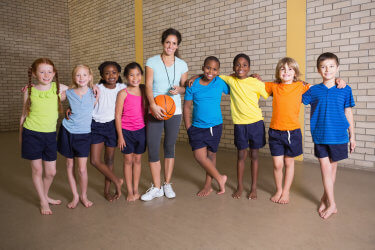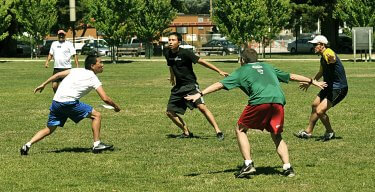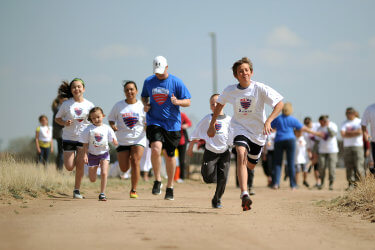When you happen to meet a former student out in public, do you ever wonder what is going through their mind? What do they remember from you and your classes? Does what they now remember after having you as their teacher match what you wanted them to learn from you?
In short, what do you want your legacy to be? Here’s a hint: Don’t wait. Your legacy starts now! Whether you are a new teacher or not so new, and whether you want it to or not, your legacy is under construction! All of us should be asking ourselves, “What do we want our former students to take from their experiences in our classes?”

What I encourage you to think about is not whether you were “popular” with your former students or they viewed you as their “friend.” But rather, what’s the most important thing you want them to remember from their time with you? Is it a certain set of skills? A particular attitude? Knowledge? Or something completely different?
Let’s think about this. What would you like for your legacy? I suggest you start by looking a year or two ahead. What do you want your students to take from your classes next year? How do you want them to remember you and your classes? Many of us spend a lot of time trying to teach skills in a way that our students can master them. We hope the hours spent planning lessons will give our kids progressions to build their skill “libraries.” Will they remember some of these skills? We all hope so! Will what you teach them today prepare them to keep learning as they progress through the grades? A good short-term legacy might be the wish that our students retain specific skills they can use at the next level.
Now, let’s look further down the road. Let’s say you teach at an elementary school. After 5-6 years, when your 4th graders begin to enter the High School as 9th or 10th, graders, what do you want them to remember? Quite possibly, a specific skill learned with you in 4th grade won’t be remembered when they are in high school. That’s fine! By now they should have progressed far beyond what we taught them years ago.
I admit to hoping they still remember an activity I taught that was fun. Or perhaps how I made learning enjoyable. Mostly however, I hope they remember finding joy in moving and wanting to be physically active and healthy instead of learning to dislike or avoid being active. When your former students get to high school, wouldn’t this be a good thing to have them remember from their time with you in elementary school? I do! Taking this longer-term view, wouldn’t this be a great legacy to work toward for your former students who are now in high school?

I recently ran into a former student who is now a teacher in our district. I asked her what she remembered from her time with me. She said that she remembered doing an obstacle course but really had fun on the scooters. Her answer surprised me a bit. I always thought that obstacle course was the highlight of our school year. But this former student’s comments about the scooters made me realize that what students sometimes value the most are things that we don’t expect.
Different kids take different things from their time with us. Her comments emphasized to me that I mustn’t fall into the trap of going through the motions and not recognizing the impact of some of the things I introduce to my students: in this case, scooters. Now, as I teach I ask myself, “What can I do today to make someone positively remember the experience somewhere down the road?”
We all need to be aware that our students will always remember how they were treated, no matter what we teach them. I hope all students will recall being treated individually and respectfully while in my classes. I hope they will remember me as someone who cared about them, helped them, and set the stage for learning to enjoy being active. I hope they’ll remember that I was there to both find mistakes and also show them how to use them to get better. When they improved, I hope they remember that I celebrated with them.
If you are fortunate like me, you’ll be around awhile! You’ll teach thousands of kids. So, looking even further down the road, once your students are in or out of college or starting a career, will they remember enjoying themselves in your classes? Will they associate movement with fun? As a teacher, I want to do my best to create adults who both value and enjoy physical activity. I hope I succeeded.
If one of your students had to describe you, what would they say? What will a former student remember about you and your classes when they see you in a grocery store? How will they talk about you with others at their dinner table? If you have their children in your class someday, what preconceived thoughts will they have about you or about physical education in general because of your influence?

I heard someone at a conference many years ago say this: “My goal is for my classes to be the topic of conversation at the dinner table EVERY night.” What a terrific way to think! Today, I try to teach every class so at least one of my students can’t wait to get home and tell parents what they did with me that day. In my mind that’s a great way to build a successful legacy.
You see, your legacy started yesterday. Whether you are a young teacher, a not-so-young teacher, or just young at heart, what we do and how we do it is always being watched by our two most important clients: our students and their parents. The experience they get with us no matter what their age, goes a long way in how they will perceive us and our message of active and healthy living.
I’ve spent too many years trying to dispel the thought that this is not your parent’s PE class anymore. I hope I’ve made some inroads here and there. I hope that I have had enough of a positive effect on my students so that when they are parents themselves, they will recall their time in physical education as enjoyable and valuable. I hope they remember that my classes were places where they got help learning to get better at something. And that they were encouraged to keep trying and learned how to turn their mistakes into successes. I hope they remember that I helped them find a way to enjoy fitting physical activity into their lives, no matter what stage in their lives they were in at the time.
Only time will tell!

I taught physical education for 47 years on all levels. I remain friends with many of my former students, taught with several, influenced several to enter the field, and whenever I run into former students, they remind me of what they learned while having fun. Just last week a gal I taught in the 70’s thaneed me for teaching her volleyball, mainly understanding the game so now as she’s watching, she understands what is going on in the game. She reminded me that she wasn’t very good, but I reminded her that being good was not the object. I also taught her children on the elementary level.